- DETERRENCE: Extended Deterrence, Assurance, and Reassurance in the Pacific during the Second Nuclear Age
- DPRK: NDC of DPRK Clarifies Principled Stand on DPRK-U.S. Relations
- ENERGY SECURITY: Climate Science: Rising Tide
- GOVERNANCE AND CIVIL SOCIETY: Putting North Korea Aid Efforts On The Map
- CLIMATE CHANGE ADAPTATION: Loss And Damage: A Range Of Approaches To Address Loss And Damage From Climate Change Impacts In Bangladesh
- AUSTRAL PEACE AND SECURITY: US Leaves Door Open on Nuclear Subs
 DETERRENCE: Extended Deterrence, Assurance, and Reassurance in the Pacific during the Second Nuclear Age, L. Brooks and M. Rapp-Hooper, in Asia in the Second Nuclear Age, A. Tellis, et al, ed, NBR, October 2013
DETERRENCE: Extended Deterrence, Assurance, and Reassurance in the Pacific during the Second Nuclear Age, L. Brooks and M. Rapp-Hooper, in Asia in the Second Nuclear Age, A. Tellis, et al, ed, NBR, October 2013
Chinese strategists see “strategic stability” as a Cold War construct denoting competition. Americans reserve the term to describe a balance between two roughly equivalent nuclear powers. Neither agrees on how the term applies to Sino-US relations. [PDF, 4.6MB, subscription]
- Strategic Stability. Contending Interpretations, E. Colby, M. Gerson, eds, Strategic Studies Institute, U.S. Army War College Press February 2013
- No progress on extended nuclear deterrence in 2013 White Paper, R. Tanter, ASPI Blog, May 2013
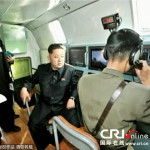 DPRK: NDC of DPRK Clarifies Principled Stand on DPRK-U.S. Relations, (North) Korea Central News Agency (12 October 2013)
DPRK: NDC of DPRK Clarifies Principled Stand on DPRK-U.S. Relations, (North) Korea Central News Agency (12 October 2013)
North Korea responded to a U.S. offer of a non-aggression agreement with a statement from their National Defense Commission (NDC). Predictably, the NDC does not accept the terms. But North Korea also left itself diplomatic space by not issuing a statement from Kim Jong-un. The NDC also mentions sanctions; Westerners may interpret this as a point of negotiations. China and North Korea recently held their 65th hydro-power council meeting.
- Delegations from China State Grid Corporation and North Korea meet with DPRK Deputy Prime Minister. Henan (China) People’s Radio, (14 October 2013) [Chinese language]
- N. Korean officials discuss return to six-party talks. Park Hyun, The Hankyoreh (4 October 2013)
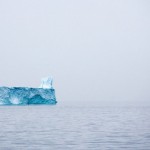 ENERGY SECURITY: Climate Science: Rising Tide, Nicola Jones, Nature [18 September 2013]
ENERGY SECURITY: Climate Science: Rising Tide, Nicola Jones, Nature [18 September 2013]
Some models predict less than 1 meter of sea level rise by 2100, some up to 2 meters. Says an ice modeler at the Brussels Free University, “The only advantage of these models is that they’re easy to calculate. I think they’re wrong.” But isn’t the ease of calculations a primary determinant of developing or testing any model, and aren’t computational models changed as computing power increases and it is possible to introduce more detailed specifications and allow more simultaneous determinations? Choice of models and methods is key. While science takes a few decades to become definitive, more rich people and poor live close to coasts.
- Which Places Are Most Vulnerable to Climate Change?, David Biello podcast, Scientific American [15 September 2013]
- Looming ‘sea level crisis’ faces US east coast, study finds, Pilita Clark, Financial Times [5 September 2013] reporting on Explaining Extreme Events of 2012 from a Climate Perspective, Special Supplement to the Bulletin of the American Meteorological Society (Vol. 94, No.9, September 2013), PDF
- Jakarta will be underwater by 2030: National Council on Climate Change, Jakarta Post [13 September 2013]
- You’re going to get wet – Americans are building beachfront homes even as the oceans rise, Economist [15 June 2013]
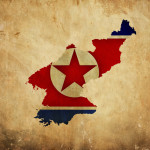 GOVERNANCE & CIVIL SOCIETY: Putting North Korea Aid Efforts On The Map, Jonathan Cheng, Wall Street Journal (15 October 2013)
GOVERNANCE & CIVIL SOCIETY: Putting North Korea Aid Efforts On The Map, Jonathan Cheng, Wall Street Journal (15 October 2013)
EngageDPRK.org has developed an interactive map of non-governmental aid efforts in the DPRK since 1995, showing a range of projects and trends of working-level engagement correlating to the DPRK’s relations with its neighbors. On the government side, the ROK will continue humanitarian aid to the DPRK despite the current cool in relations, while the DPRK may be changing its stance towards a nukes-for-aid deal.
- EngageDPRK.org
- North hints at a nukes-for-aid deal in new talks, Joongang Ilbo (12 October 2013)
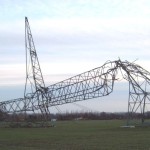 CLIMATE CHANGE ADAPTATION: Loss And Damage: A Range Of Approaches To Address Loss And Damage From Climate Change Impacts In Bangladesh, Ainun Nishat, Nandan Mukherjee, Erin Roberts and Anna Hasemann, Centre for Climate Change and Environmental Research (C3ER), BRAC University, Bangladesh (June 2013) [602 KB, PDF]
CLIMATE CHANGE ADAPTATION: Loss And Damage: A Range Of Approaches To Address Loss And Damage From Climate Change Impacts In Bangladesh, Ainun Nishat, Nandan Mukherjee, Erin Roberts and Anna Hasemann, Centre for Climate Change and Environmental Research (C3ER), BRAC University, Bangladesh (June 2013) [602 KB, PDF]
While climate change induced loss and damage is being discussed at the global level, it is being incurred at the local level. For those experiencing it, the concept of loss and damage at the policy level has no meaning, but its impacts do. Thus, it is important to understand how loss and damage is being experienced within states and communities and more importantly, how it can be addressed and ultimately reduced.
- A house with many rooms: Addressing loss and damage from climate change, Saleemul Haq, International Institute for Environment and Development (4 September 2013)
- The role of micro insurance as a safety net against environmental risks in Bangladesh, Sonia Akter, The Journal of Environment and Development, vol. 21, no. 2, pp. 263-380 (2012) [152 KB, PDF]
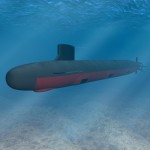 AUSTRAL PEACE AND SECURITY: US Leaves Door Open on Nuclear Subs, John Kerin, Australian Financial Review, (9 October 2013)
AUSTRAL PEACE AND SECURITY: US Leaves Door Open on Nuclear Subs, John Kerin, Australian Financial Review, (9 October 2013)
Former Labor and Liberal defence ministers support Australia acquiring 10 to 12 Virginia-class nuclear-powered attack submarines. Double the size and complement of Australia’s disastrous domestically built Collins class submarines, the 7,900 tonne submarines cost about $US 2.5 billion each. With US procurement for the Virginia program under threat, US wants more support from its allies, including submarine support US Asia Pacific forces.
- Navy Virginia (SSN-774) class attack submarine procurement: background and issues for Congress, Congressional Research Service, RL32418 (27 September 2013)
- Paul Dibb, A sovereign submarine capability in Australia’s grand strategy, Centre of Gravity Series, Strategic and Defence Studies Centre, Australian National University Studies (December 2012)
- Future submarine project should raise periscope for another look, Simon Cowan, Centre for Independent Studies, CUS Policy Monograph 130 (2012)
The Nautilus Peace and Security Weekly Report presents articles and full length reports each week in six categories: Austral security, nuclear deterrence, energy security, climate change and security, the DPRK, climate change adaptation and governance and civil society. Our team of contributors carefully select items that highlight the links between these themes and the three regions in which our offices are found—North America, Northeast Asia, and the Austral-Asia region.
Subscribe to NAPSNet to receive free weekly email reports
Editor
- Saegan Swanson (while Arabella Imhoff is on leave)
Contributors
- Deterrence: Peter Hayes
- Governance and Civil Society: Dyana Mardon
- Climate Change Adaptation: Saleem Janjua
- DPRK: Roger Cavazos
- Energy Security: Nikhil Desai
- Austral Peace and Security: Richard Tanter

